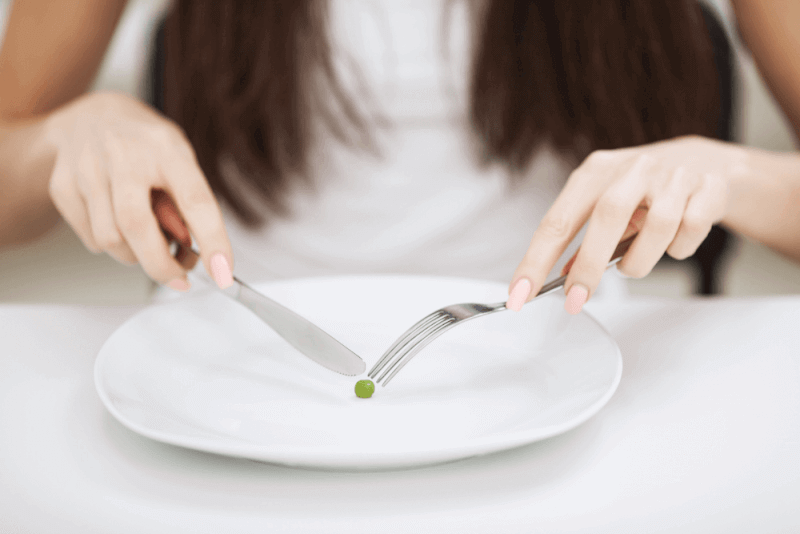What is Summer Depression?
Summer depression, a type of seasonal affective disorder, is a form of depression related to seasonal changes. For this reason, it starts and ends at approximately the same time each year. Seasonal affective disorders can be seen in the autumn and winter months, but are most often observed in early spring and summer. The symptoms caused by depression tend to improve during the autumn or winter months.
Diagnosis Methods for Summer Depression
Even with a comprehensive evaluation, it can sometimes be difficult for healthcare professionals to diagnose seasonal affective disorder, as it shares similar symptoms with other types of depression or mental health conditions.
A comprehensive evaluation to assist in diagnosing seasonal affective disorder typically includes the following:
- A physical examination is performed first to rule out any underlying physical health issues that may be connected to depression.
- Since thyroid dysfunction can cause symptoms similar to depression, various laboratory tests are conducted to rule out this condition.
- A psychological evaluation is extremely important in diagnosing summer depression. To check for symptoms of depression, a healthcare professional may ask about thoughts, feelings, and behavior patterns. This assessment can be conducted through a questionnaire.
Symptoms of Summer Depression
Seasonal affective disorder, one of the types of depression, is classified as major depressive disorder by the American Psychiatric Association. Therefore, if seasonal affective disorder is present, symptoms of depression and emotional changes, including the following, are experienced:
- Sadness
- Feeling depressed most of the day
- Excessive anxiety
- Increased craving for carbohydrates
- Extreme fatigue
- Weight gain
- Lack of energy
- Feelings of hopelessness
- Feelings of worthlessness
- Difficulty concentrating
- Irritability
- Feeling restless
- Feeling heavy in the arms and legs
- Withdrawal from social activities
- Loss of interest in pleasurable activities
- Sleep problems, especially sleeping less
- Thoughts of death or suicide
- Agitation
- Decreased appetite
- Weight loss
- Violent behavior
People with bipolar disorder are at high risk for seasonal affective disorder. Some people with bipolar disorder may experience sudden attacks associated with a specific season.
Causes of Summer Depression
Approximately 10% of people with seasonal affective disorder experience summer depression. The onset of summer triggers symptoms of depression. In countries near the equator, summer depression may be more common than winter depression.
Experts have not confirmed the exact cause of seasonal depression, but the following are considered possible factors:
Disruption of Routines in Summer
For people who have previously experienced depression, maintaining a reliable routine is often effective in alleviating symptoms. However, routines often disappear during the summer, and this disruption can be stressful, leading to summer depression.
Body Image Issues
As temperatures rise and clothing layers decrease, many people feel very self-conscious about their bodies. Embarrassment about physical appearance can make life more difficult. Since many summer gatherings occur around beaches and pools, people may start avoiding social situations.
Financial Concerns
Summer can be more expensive compared to other seasons. In addition to the need for vacations, working parents may have to spend a lot of money on summer camps or babysitters to keep their children occupied. Increased expenses can heighten the feeling of summer depression.
Heat
While being at the beach or pool on hot summer days may be fun, it can be unbearable for those without access to such amenities. People in this situation may retreat to air-conditioned rooms during their days off.
Summer Depression and Nutrition
Nutrition is an important part of treating seasonal depression. Adjusting one’s diet and adding foods that promote mental health can help manage symptoms, especially in cases of winter depression.
The following foods should be included in your diet to promote mental health:
Antioxidants
Oxidative stress is a natural process in our bodies, but it can lead to the formation of small molecules that can cause significant damage. These molecules, known as free radicals, can cause cell and tissue damage, as well as common symptoms linked to depression and aging.
If too many free radicals accumulate in the body, harmful effects can occur. Research indicates that people may be at risk due to an excessive increase in free radicals.
Although free radicals are produced naturally, there are ways to reduce their harmful effects. One method is to increase antioxidant intake. Foods rich in antioxidants include:
- Apricots, broccoli, cantaloupe, carrots, kale, peaches, squash, spinach, and sweet potatoes, which are rich in beta-carotene
- Blueberries, broccoli, grapefruit, oranges, peppers, potatoes, strawberries, and tomatoes, which are high in vitamin C
- Margarine, nuts, seeds, vegetable oils, and wheat, which are rich in vitamin E
Healthy Carbohydrates
As with other types of depression, summer depression is often associated with low serotonin levels. Carbohydrates can help increase this mood-enhancing chemical. Therefore, people with summer depression tend to crave carbohydrates.
However, it’s important to choose smart carbohydrates and limit the intake of highly processed carbohydrates with high sugar content. Foods classified as smart carbohydrates include:
- Fruits
- Vegetables
- Legumes
Foods Rich in Tryptophan
Tryptophan, an amino acid linked to serotonin, helps regulate emotions in people with depression. Consuming foods rich in tryptophan can also boost mental alertness and energy. These foods include:
- Beans and peas
- Lean red meat
- Low-fat cheese
- Milk
- Poultry
- Soy products
- Yogurt
Selenium, Folate, and Vitamin B12
The Mediterranean diet is highly effective in combating depression. This diet is among the best for mental health because it focuses on foods rich in selenium, folate, and vitamin B12. Numerous studies show that all these essential vitamins directly affect depression. Foods rich in these vitamins include:
- Legumes
- Nuts
- Dark leafy greens
- Fish
- Low-fat dairy products
Treatment Methods for Summer Depression
The treatment methods for summer depression are generally similar to those used in the treatment of other types of depression. Treatment methods for summer depression include:
Psychotherapy
Also known as talk therapy, psychotherapy is one of the options for treating summer depression. Cognitive behavioral therapy (CBT), a type of psychotherapy, helps manage summer depression. Benefits of this treatment include:
- Learning healthy ways to cope with problems
- Identifying and changing negative thoughts and behaviors that may contribute to feeling bad
- Learning how to manage stress
- Developing healthy behaviors
Medications
In some cases, the symptoms of summer depression can be severe. These individuals may be treated with antidepressant medication. Certain types of antidepressants can help prevent depressive episodes in people with a history of depression. For this reason, antidepressant treatment often begins before summer.
Managing Summer Depression
Some lifestyle changes can be sufficient to manage summer depression. These changes include:
Planning Ahead
Unlike other types of depression, the biggest advantage of summer depression is knowing exactly when it will occur. For this reason, individuals can plan how to cope with their feelings before summer arrives.
Getting Enough Sleep
Due to increased social activities, people tend to stay up late. However, not getting enough sleep is one of the biggest triggers of depression. Therefore, individuals with summer depression should be careful to go to bed at the right time.
Physical Activity
Research shows that exercise helps alleviate symptoms of depression. Although the weather may be very hot during the summer, continuing an exercise routine can help reduce the symptoms of summer depression.
Avoiding Extremes in Weight Loss
If weight loss methods are taken to extremes in the pursuit of looking better, it can be unsustainable. This failure may cause individuals to feel worse about themselves.
Understanding the Cause
There may be personal reasons for experiencing summer depression. Identifying these reasons and breaking the cycle can lead to complete recovery from summer depression.
Planning Vacations
Before going on vacation, it is important to determine if you truly want to go. If you feel compelled to take a vacation due to obligations, this needs to be addressed. Additionally, instead of using all your vacation time at once, taking shorter breaks throughout the summer may be more relaxing.
Avoiding Self-Blame
Feeling depressed while everyone else is having fun in the summer can make individuals feel out of place. However, being hard on yourself can deepen depression. Instead, it’s important to let go of the idea that you must be happy just because it’s summer.







